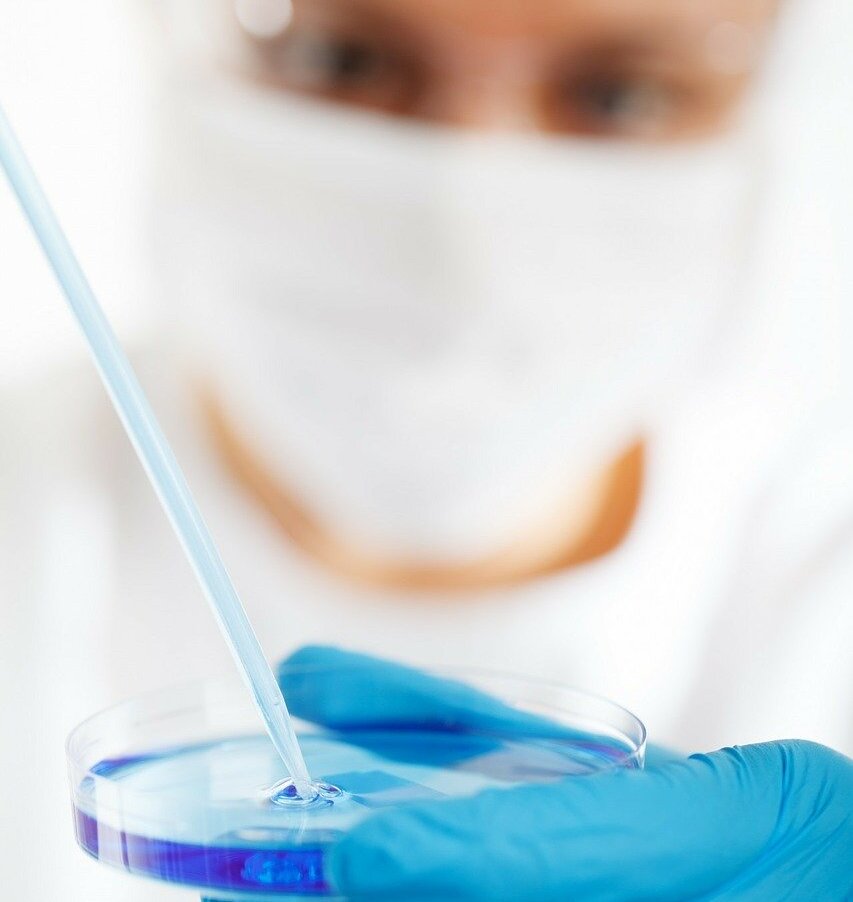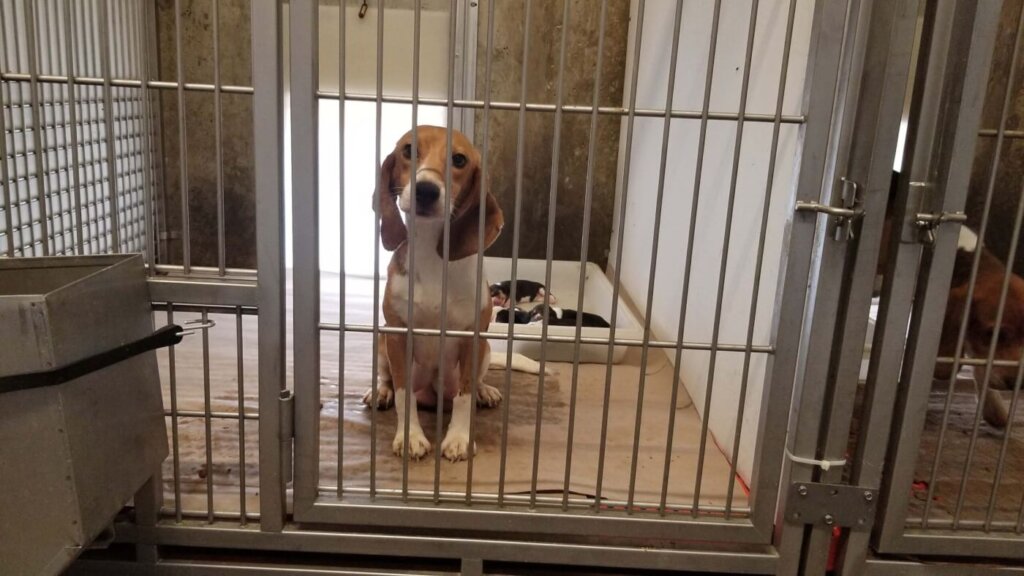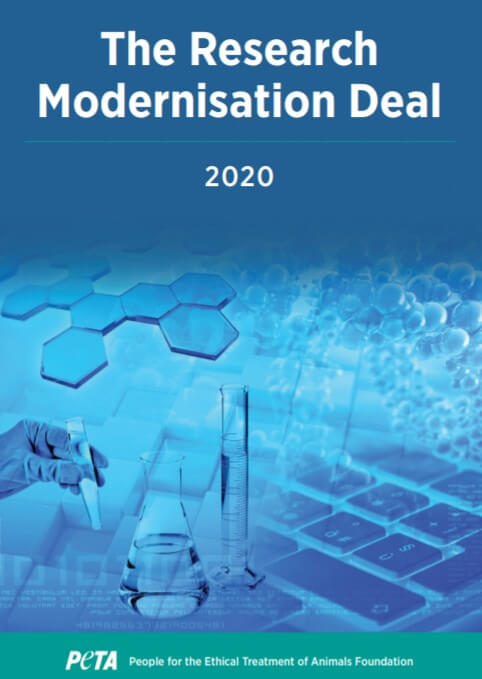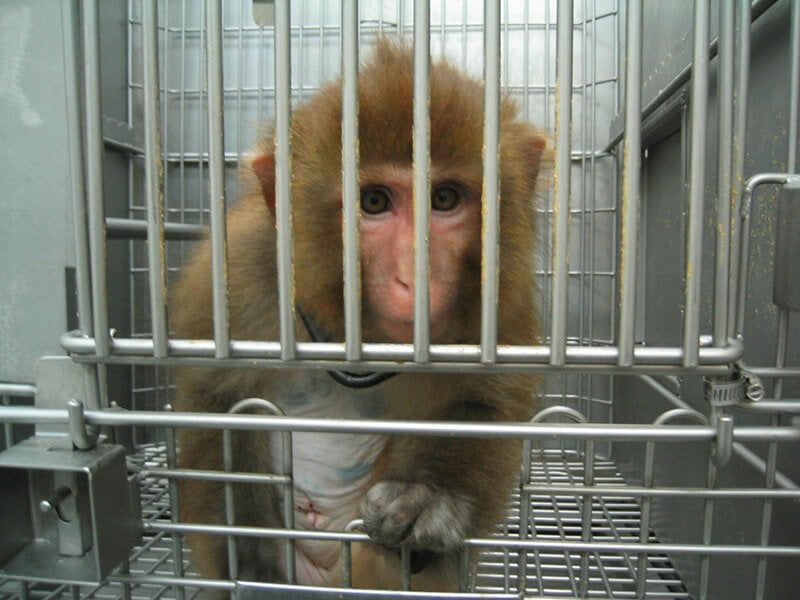
PETA Affiliates’ New Deal to Revamp Biomedical Research and Regulatory Testing
Although the COVID-19 pandemic is one of the most serious in modern history, it does create an opportunity for modernising research. For the first time ever, a vaccine has gone directly to human trials without waiting for the results of certain lengthy and deadly animal trials. Around the globe, university closures prompted by the novel coronavirus outbreak have led to the suspension or cancellation of experiments involving animals.
This brings us to a crossroads. Researchers can either continue with “business as usual” by tormenting and killing animals in experiments – creating further obstacles to human health – or they can embrace real science. If we can eliminate animal experiments in a time of crisis, we can do so all the time.
Scientists from PETA’s affiliates have researched the failure of the animal experimentation paradigm to help humans suffering from disease, and they have a plan, known as The Research Modernisation Deal. Our affiliates are calling on relevant national agencies around the world to embrace this new plan, stop funding what’s not working, and direct resources towards better methods. We’re urging the Australian government and national research funding bodies to do the same.
The current system is broken, and the following problems must be addressed.
- Fewer than 10% of highly promising basic scientific discoveries enter routine clinical use within 20 years.
- The failure rate of new drugs developed using animals in specific disease research areas exceeds 95%. Here are a few examples.
- Alzheimer’s disease: 99.6%
- Cancer: 96.6%
- HIV/AIDS vaccine: 100%
- Strokes: 100% (based on 1,000 new animal-tested agents tested in 100 clinical trials)
Consider this: 49,000 Australians experienced strokes in 2012, costing the federal government alone $1.5 billion. Although more than 1,000 experimental treatments aimed at protecting brain cells during acute strokes have been developed using rodents, none has been effective in humans.
Animal-based approaches to the safety assessment of chemicals are also fraught with problems –some test methods date back 50 to 60 years. A pivotal report from the US National Academy of Sciences notes that the current approach to assessing the safety of chemicals – which typically involves using animals – is time-consuming and costly, resulting in an overburdened system.
We need a better way – and scientists from PETA’s affiliates have come up with it: The Research Modernisation Deal.
What’s the Deal?
The Research Modernisation Deal outlines a roadmap for replacing the use of animals in experiments with human-relevant methods.
It includes the following steps:
- Eliminating the use of animals immediately in areas in which they have already been shown to be poor surrogates for humans
- Critically reviewing additional areas of research to determine whether animal use can be ended there, too
- Implementing a robust ethical evaluation system as part of policies governing the use of animals, thereby increasing the transparency, accountability, and effectiveness of the regulatory process
- Promoting the international harmonisation and acceptance of non-animal testing methods among national and international agencies and research bodies
- Redirecting funds from animal experiments to the development of non-animal methods
PETA opposes all animal experiments and campaigns for an immediate end to all animal use. Regulatory and scientific authorities must acknowledge the failure of animal studies and, as a first step, immediately end all animal use for disease research areas in which it is known to fail to produce results that help humans. To do otherwise is unethical, impedes good science, wastes resources, and harms animals. It’s time for The Research Modernisation Deal.
Animals Are Suffering in Laboratories – Help Save Them Now




